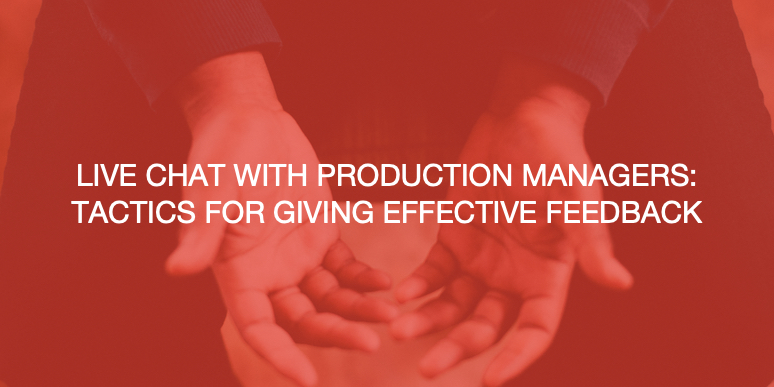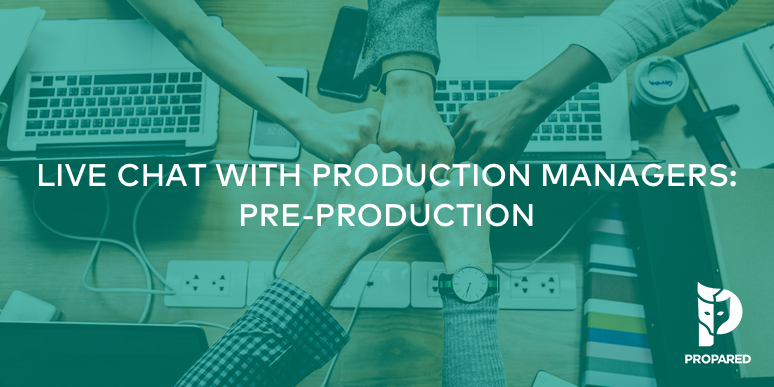
Have you ever heard this quote:
“If you’re not getting better, you’re getting worse.”
To sports fans, this will seem familiar. Turn on any post-game press conference and there’s a coach or your favorite player giving an assessment of the team’s performance. The point? Win or lose, what worked today won’t be enough tomorrow.
Event planners face the same challenges in a competitive market. If you don’t take the time to properly review each event, you may miss critical opportunities to identify mistakes and grow.
“Debriefing” is vital for continuous improvement. Yet many companies still don’t do it, let alone freelancers. Here are 8 tips to help you design a strong debrief process to ensure you and your event planning company are better tomorrow than you were today.
1. Set a Time Frame
Generally speaking, you’ll want your debrief process to reflect the size and scope of the project. For shorter events – ones that are scoped, planned, and produced within a month – schedule your team debrief no later than a day or two after it ends. For a larger project – one that might stretch over many months – hold weekly debriefs to review the work in manageable parts. You can measure if deliverables are moving along on time and on budget. If there are issues, you can adjust before it’s too late.
Debriefs are most successful when the details are fresh in everyone’s mind. The longer you wait, the less you’ll recall. Your learning could be severely impacted.
2. Set an Agenda
No one on your team should be asking, “What are we here to talk about?” A good debrief session is not a management directive. It’s a conversation. Make sure the people in the room know what you’ve gathered to talk about ahead of time. This is especially important when reviewing data points from the event. Here’s a few ideas to get started:
-
What are the main goals
-
What do they need to prepare
-
What do they need to bring
-
Who’s running the meeting
-
Who’s responsible for documenting the takeaways
3. Learning, Not Finger Pointing
A debrief is not a forum to complain. It’s not an opportunity for people to air their dirty laundry and certainly not the place to assign blame for any mistakes made during the event.
This is easier said than done, especially if a project didn’t turn out well. Emotions run high and people get defensive. They do this because they care. They’re passionate about the work, set high standards for themselves and each other, and get embarrassed if it wasn’t successful. Try to remember that these are good things! Wouldn’t you rather employ an engaged, caring team over one that is generally disinterested in the outcome?
You as the manager set this tone. If you begin a debrief by pointing fingers or singling people out, don’t be surprised when others follow suit. Keep it positive and focus on collective learning.
4. Just the Facts
There are two types of feedback you can collect after your event; qualitative and quantitative. Qualitative research is designed to uncover the thoughts, feelings, and motivations of your subjects (e.g., attendees). It is best used to explore the potential reasons your subjects behave in certain ways, for example, an interview with an attendee. Quantitative data is more numerical in nature. It is a way of turning those thoughts and feelings into statistics (via surveys, polls, etc.) that you can use to implement concrete changes to your process.
Both are integral parts of your debrief session. The only word of caution is that when setting your agenda, keep them separate. It’s easy for a conversation to veer from talking about data (e.g. how many people registered day of vs. in advance ) to talking about individual opinions on why the data says what it says. Before you know it, you’re in a debate about a single issue and the entire meeting has gotten off track.
Start with the data you were measuring at the event. Two easy metrics to measure are time and money. Recap the major phases, milestones and overall timeline of the project. How long did things take, what did they cost, and were we over, at, or under budget?
Once the team has examined the details, you can address how well they were executed. Here are some sample questions to ask.
-
Which of our methods or processes worked particularly well?
-
Which of our methods or processes were difficult or frustrating to use?
-
How would we do things differently next time to avoid this frustration?
-
Anything else could we do better next time?
-
What are some actionable items to adjust or repeat on a future project?
Even though you are getting qualitative, keep it focused on what happened, not who did it. No blaming. You could always throw a little love to a team member who performed exceptionally well. But otherwise, keep it impersonal. Your path to answering questions and developing hypotheses for the next event will be much clearer. You’ll know if there are personal conflicts to be addressed. That’s another meeting. By the end of the debrief, you should have a sizable list of insights with which to take action.
5. Create Actionable To-Dos
This entire process is worthless if you don’t do anything with the feedback. It’s not an exercise in relieving stress. Though it is a side benefit. You leave most debriefs feeling good about what you learned and what to do next. You still have to go do it.
Collect your action items and build a priorities list. What are the tasks you absolutely must do and what would be nice to do? You may not have time to implement everything you want before you’re back on a production site. It’s important to know the difference between need and want. Once your list is built, assign team members to lead individual projects. Need a better event management solution? Put someone in charge of researching and pricing options. Need to hire an assistant? Someone is going to have to write the job description and post it.
6. Debrief with the Client, Too!
Do you think a client should ever see your faults? It’s a tough question to answer. Say yes and you’re inviting more scrutiny of your work. Say no and it may seem like you’re hiding information. In most cases, debriefing with your client is a positive and helpful exercise in improving your quality of work.
Clients have a unique perspective. Vendors, venues, team members; they all possess a level of savvy about the industry and its challenges that clients often don’t. This is valuable! It allows clients to respond to the work on a much simpler level. Ask them how they felt about their relationship with you. Did they feel you were communicative? Responsive? Easy to work with?
Prepare yourself for the occasional rough criticism. A crew member can tell you your lighting gels were a little dark but a client might see the same thing and just say the event looked bad. Don’t take it personally. Mistakes can be forgiven. It’s what you do after that makes a lasting impression. Your willingness to accept critical feedback will separate you in a crowded field.
7. Invite a Third Party
Event planners are often in the position to receive feedback from outside sources. Events are produced by multiple teams coming together, each providing specialized services. Like clients, these partners can offer unique perspectives. When scheduling a debrief, drop a line to the production crew chief or call around to your vendors and over-hires. See if anyone would like to join the meeting.
Send your guests the agenda in advance. Encourage them to jot down some answers to your questions. They might feel uncomfortable in the meeting at first so ask for their perspective early on. Ask what it was like during their part of the process. You can even set aside a specific amount of time at the front of the meeting so that you can let them leave once they’ve contributed.
8. Share, Share, Share
Some members of your team may not have been involved with a particular event. Does that mean you should leave them out of the learning? Of course not. There will likely be takeaways that affect how everyone works on future projects. Send around a recap of the meeting including the agenda, topics discussed, and action items. The conversations that crop up among team members in the weeks after are among the most important effects of the meeting.
Debriefing your events is a critical component of your production and planning process. It may be even more important as your company grows. Building an active learning process will equip you to maintain your advantage, source more work, and continue to get better.
This post was originally published in January, 2016. It has been updated for accuracy and comprehensiveness.



